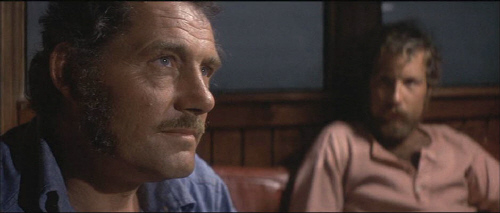My late wife had a best friend whose friendship rivaled any as the benchmark of friendships. From elementary school through her death eight years ago, Naomi and Lisa were connected at the proverbial hip.
In the years since her death, Na continues to call me every few weeks to catch up. I’m pretty sure it’s the last act of friendship requested by Lisa and carried out by Na. She checks up on me, asks about the kids, and fills me in on her husband, son, parents, brother, and sister. I appreciate her calling. It’s as if she’s maintaining a thread through the universe and time whose story has expired, but no one told the cloth.
Two days ago, Na called to tell me her dad had died. I did my best to ask the right questions, say the right things, and console Na. Inside, I broke down, and despite my best efforts, some of it snuck through. The last thing I wanted on that call was for Na to console me. I did okay. At least until I hung up. I knew I now had two more calls to make. One to each of my children. They have known Na and her family their entire lives, and Na checks up on them as Lisa’s emissary, too. Those calls hurt even more. I know I didn’t do okay.
Na’s dad liked to talk. And once he started, short of a natural disaster, there was no way of exhausting the discussion. One of my memories of him was that at every party I attended at Na’s house, I always talked to her dad for hours. Everyone else seemed to drift away, leaving me alone. They chuckled. I was the fresh meat. Except I never felt stuck. There was never one conversation I had with him that I regretted. And I know why.
As the newcomer in a relationship as long-lasting and deep as Lisa had with Na (and her family), I was obviously the outsider. To be taken in by Na’s dad felt like acceptance. As if he thought, “If Lisa thinks he’s okay, he must be okay.” I felt like I belonged. Now, he may have been just as comfortable talking to a lamppost for hours on end, but I don’t regret those times talking with him. I have no idea what he thought of me, but he was genuine enough that even my dimwitted perceptive skills probably would have gleaned insincerity in him.
He was a bull who owned his own machinist shop. If asked, to a person, I know one of the first traits people would mention about him was how he was the hardest working person they knew. He would also do what he thought was right. Some would argue that his demeanor may have hindered his medical treatment over the past year. More likely, his hardheadedness kept him going. Let me explain.
Have you ever seen a football game where the running back is handed the ball, gains a few yards, and is tied up but not tackled by a defender? Then another defender makes a hit, and they still can’t take down the running back together. Then, two more join in as the running back’s legs keep moving him forward. Finally, either the pile collapses or the whistle is blown, ending the play. For Na’s dad, the play only ended when circumstances and the universe conspired to overwhelm him with too many medical priorities. He was a force any running back would envy.
As a hardheaded bull (like Lisa and her enormous personality), I know it was hard watching this once-strong man wither and finally succumb. I saw every decrease in Lisa’s health through the end. I did not see his decline. However, I know how hard witnessing it is and what a toll it takes on caregivers. He is at peace now, like Lisa. If there’s a heaven, Lisa greeted him with a smile, a hug, and a cutting joke. I hear him laughing, a cigar in one hand and a popsicle in the other.
If you’re so inclined, have a thought for Na and her family today. They lost a giant.











 We are divided. We are angry. Regardless of what side of the political chasm you stand on, we each scream at ears that cannot hear. Each side can site their own origin for our condition, but increasingly, our cold civil war is getting hot.
We are divided. We are angry. Regardless of what side of the political chasm you stand on, we each scream at ears that cannot hear. Each side can site their own origin for our condition, but increasingly, our cold civil war is getting hot.

